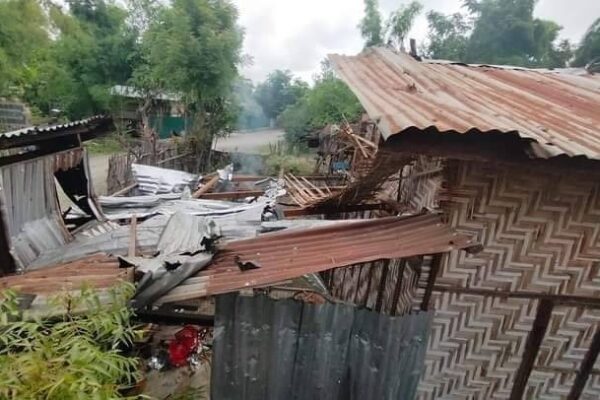
Who are the 18 parties running in Cambodia’s election?
Eighteen political parties will compete in Cambodia’s parliamentary election on July 23 – the country’s seventh national vote since the United Nations organized and ran the 1993 election two years after the Paris Peace Agreements. The National Election Committee in May ruled that two parties – the main opposition Candlelight Party and the Khmer United Great Nation Party – could not appear on the ballot, citing inadequate paperwork. The Candlelight Party is widely believed to be the only party that could have mounted a serious challenge to Prime Minister Hun Sen’s Cambodian People’s Party, but its exclusion means the ruling CPP is expected to win the large majority – and possibly all – of the National Assembly’s 125 seats. Even if it doesn’t, most of the other parties are deferential to the CPP and Hun Sen. Many officials from the smaller parties have been appointed to the Supreme Consultative Council, an advisory body created by Hun Sen following the 2018 election to bolster his power with the appearance of multi-party support. Here’s a look at every party on the ballot. _ Beehive Social Democratic Party: Radio station owner Mam Sonando founded the party in 2016. He had been a vocal critic of Hun Sen’s government, and his independent Beehive Radio station was once described by Human Rights Watch as “a key platform for promotion of human rights and democracy.” But after the 2018 election, the prime minister appointed Mam Sonando to the Supreme Consultative Council. Since then, the Beehive Party has repeatedly come out in support of the government. _ Cambodia Indigenous Peoples Democracy Party: The party was formed in early 2017 and is headquartered in Mondulkiri province. The president is Blang Sin, an ethnic Pnong who has participated in the Supreme Consultative Council. The party has not had an active campaign presence. _ Cambodian Nationality Party: Chaired by Seng Sokheng and first registered as a party with the Ministry of Interior in 2011, the party supports Hun Sen’s leadership and attacks opposition activists. It also participates in the Supreme Consultative Council, a body Hun Sen created. _ Cambodian People’s Party: Originally known as the Kampuchean People’s Revolutionary Party, it was formed in 1951 as part of Ho Chi Minh’s Indochina Communist Party. Hun Sen is its president and has been in power in government since 1985. The party has listed his eldest son, Hun Manet, as a National Assembly candidate in Phnom Penh. Hun Sen has said that he wants Hun Manet to eventually succeed him as prime minister – a transition that could happen soon after the election. _ Cambodian Youth Party: The party was founded in 2015 by Pich Sros, a former garment worker. Along with Funcinpec, it filed a complaint in 2017 against the Cambodia National Rescue Party – then the country’s main opposition party – that led to that party’s dissolution. After the 2018 general election, Pich Sros was promoted to the rank of senior minister when he agreed to participate in the Supreme Consultative Council. He has been active in criticizing the opposition. _ Democracy Power Party: Formed in 2020 by Un Visethkun, the former vice president of the Cambodian Youth Party. The party praised and supported Hun Sen’s policies. In February, the party issued a statement supporting the government’s decision to revoke the license of independent media outlet Voice of Democracy. _ Dharmacracy Party: Formed in 1998, party officials did not take any action until 2017. After the CNRP was dissolved, the party participated in the 2018 general election. Its president, Por Tey Savathy, and her husband, vice president Tan Chanphal, have been appointed to the Supreme Consultative Council. The party follows Hun Sen’s political line. _ Ekpheap Cheat Khmer Party: The party announced in 2022 that it had expelled its vice president, Un Chim – a former Buddhist monk from California – following accusations that he faked a voice message from Hun Sen. The acting president of the party at the time, Lak Sopheap, told reporters in January 2022 that the fake message was sent to party members in Cambodia and the U.S. as a way of attacking her and other party leaders. The contents of the message have not been revealed to reporters. The Ministry of Interior later recognized Un Chim as the party’s new president. In February 2022, Un Chim expelled Lak Sopheap and another top official. _ Farmer’s Party: Established in 1988. The president is Meas Bo Pov, a former CPP member who has been connected to a number of public land disputes. The party follows Hun Sen’s political line. In May, it published a statement supporting the NEC’s decision to disallow the Candlelight Party from the election. _ Funcinpec: Formed in March 1981 as a resistance movement to the Vietnam-backed regime of the 1980s. It signed the 1991 Paris Peace Agreements and formed a coalition government with the CPP after the 1993 election. Internal conflicts and Hun Sen’s separatist strategy have weakened the party over the years. Nhek Bun Chhay of the Khmer National United Party was the party’s secretary-general from 2006-2015. The current president is Prince Norodom Chakravuth, the grandson of the late King Norodom Sihanouk and the eldest son of the late Prince Norodom Ranariddh, who served as co-prime minister from 1993-1997. Most voters no longer associate Funcinpec with the country’s royalist past, especially after Ranariddh’s decisions at various times over the years to align with the CPP. _ Grassroots Democratic Party: Formed in 2015 by a group of senior intellectuals, leaders and members of civil society. It’s led by Yeng Virak, former president of the Community Legal Education Center, a Phnom Penh NGO that works on land issues. While some senior party officials have recently left to join the government, the party continues to criticize alleged violations of law and human rights committed by Hun Sen’s government, including the recent passage of an election law amendment that prohibits those who don’t vote in this month’s elections from running for office in the future. _ Khmer Anti-Poverty…





